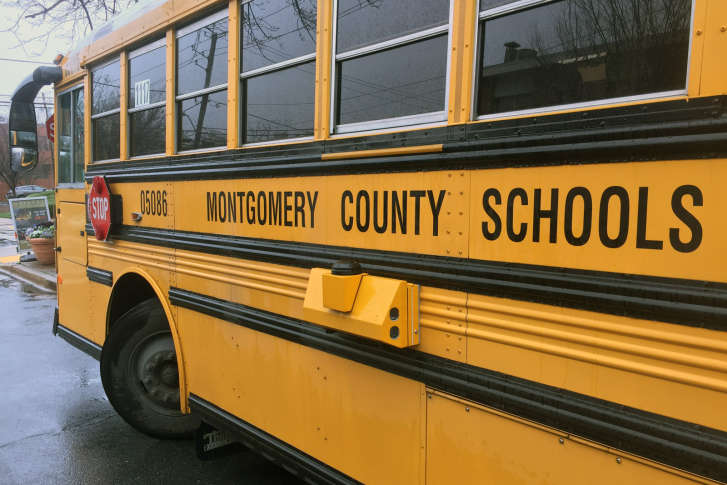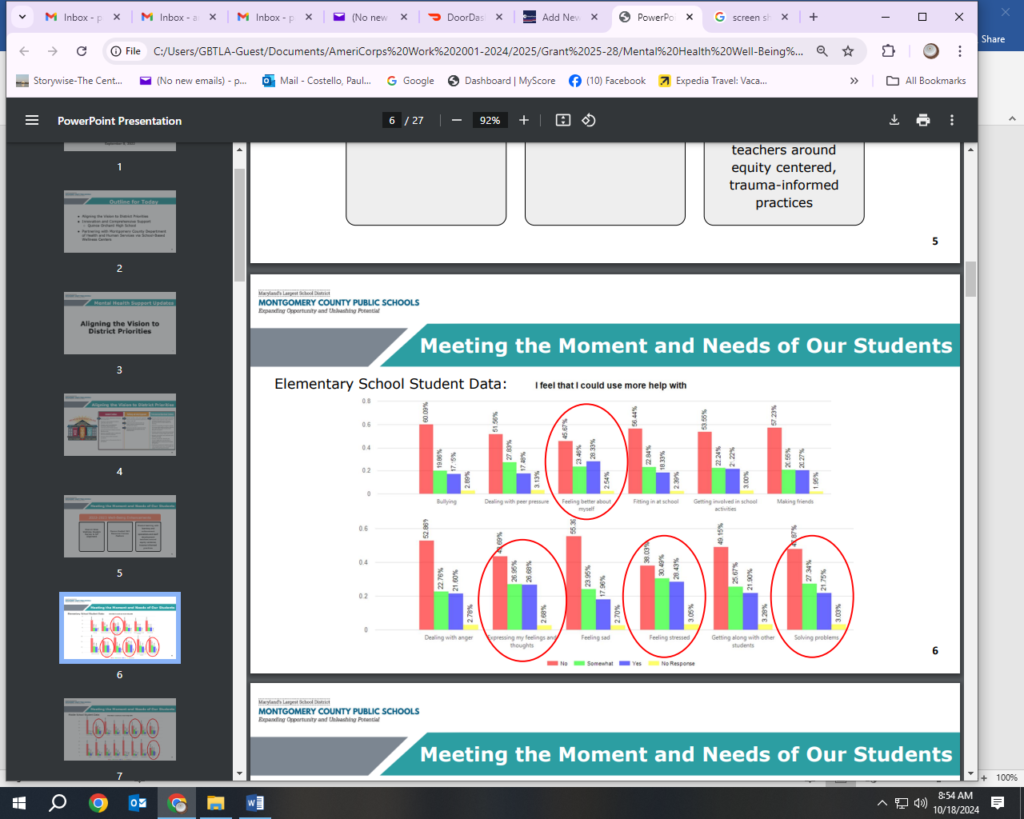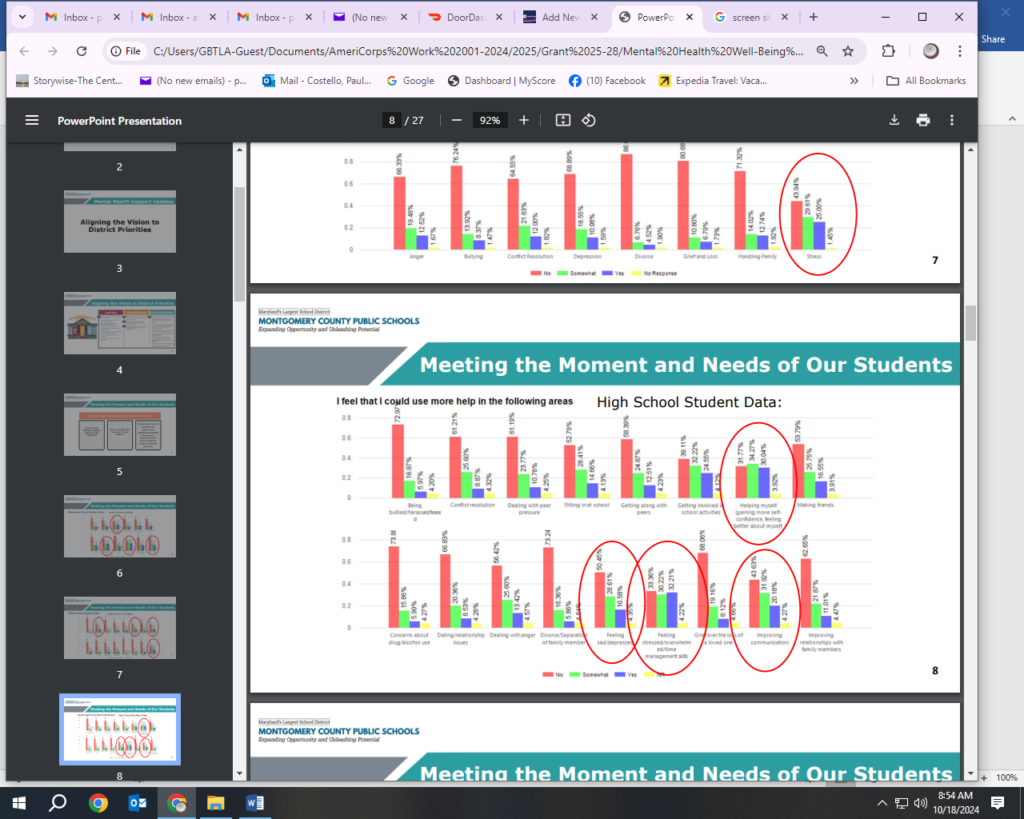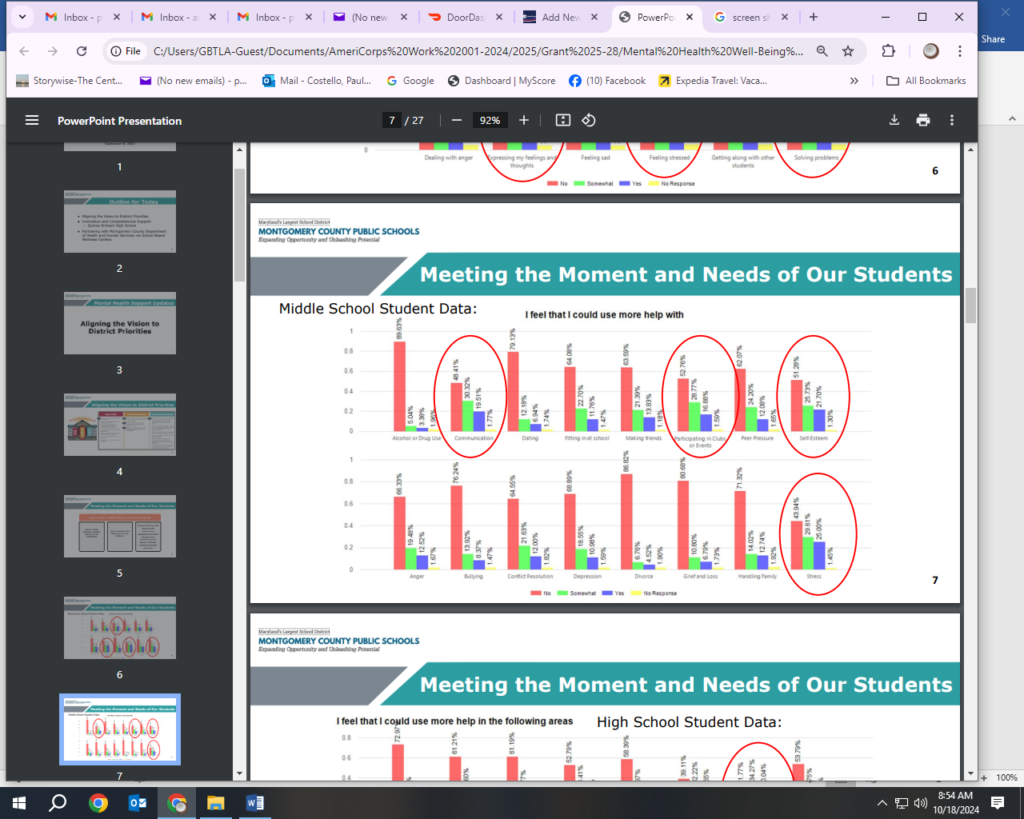
COVID exposed the cracks in the health care and education systems, showing that closing schools to protect the physical health of students exposed them to higher risks to their mental health and overall social-emotional wellbeing. Those local communities already lacking resources fell further behind, with rates of depression, suicide, absenteeism and even online disengagement rising to record levels. Since school in person has returned, the recovery from learning loss has been the focus of MCPS and most school districts, but the legacy of a year of lost socialization is still taking its toll among the neediest students.
Project CHANGE’s data from service of 3000 + MCPS students each year over the last 3 years show that up to 70% of young people are not excited about learning, and upwards of 40% give up when things get hard. These scores are validated by their low sense of confidence to learn.

In 2021-2, MCPS conducted their own Student Wellness Survey for 61,000 MCPS students and found that across all grades, 28% of students said they struggled dealing with stress, 26% felt lacking in self-esteem, and 22% needed help with expressing their emotions. In 2023, the recovery from COVID learning loss was uneven and absenteeism was at 32%, 6 points above the national average, and reflecting over 5 million lost hours of learning. When the system is obsessed with testing and with closing the achievement gap through improving test scores, the most disadvantaged students struggle even more in a culture that defines their deficiency as a deviancy. The very system committed to help them learn is teaching them they are losers. School is a race they are forced to compete in and run last.

Project CHANGE is committed to counter this destructive lesson and support students to become successful life learners, even if that sometimes means unlearning the lessons of school. The MyScore instrument which Project CHANGE uses to map the culture of learning through the 5C’s has proven success in first of all, diagnosing the problem by taking the student’s self-assessment seriously and validating it with classroom behavior, and from these data points, plan and implement a low-level intervention through mentoring and accompaniment.
